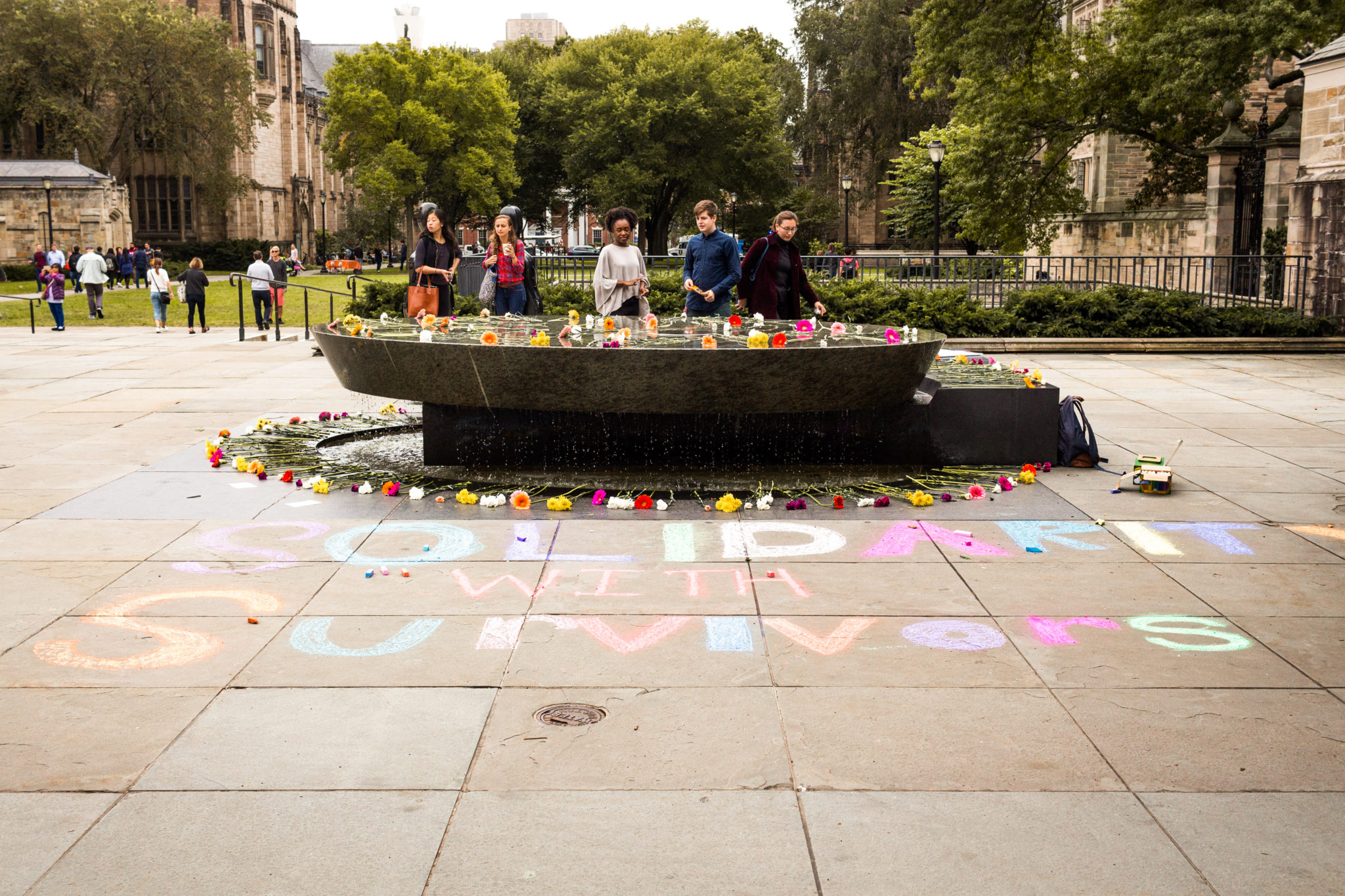
On Sept. 24, 2018, over 400 Yale students, alumni and other members of the Yale community flooded the Yale Law School and the Hart Senate Office Building in Washington, D.C., to protest the confirmation of then-Supreme Court nominee Brett Kavanaugh ’87 LAW ’90.
In D.C., the protests led to the arrests of two law students, Jacob Schriner-Briggs LAW ’21 and Jesse Tripathi LAW ’21, who demonstrated alongside over 100 Yale Law students. At the Law School, over 300 people staged a sit-in, in hopes that the administration would condemn his nomination in light of multiple sexual misconduct allegations, specifically the two by Christine Blasey Ford and Deborah Ramirez ’87.
“Kavanaugh is disgusting, that’s why we’re disrupting,” chanted the D.C. demonstrators. “We believe Christine Ford, we believe Anita Hill,” they continued. “We are here to make loud and clear that the Yale Law community doesn’t stand for Brett Kavanaugh,” said Dianne Lake ’16 LAW ’20, an organizer of the sit-in at Yale Law School.
The two protests, although in separate locations, were organized by the same group, Yale Law Students Demanding Better. The group, a coalition created by leaders of affinity groups and other concerned students, was created in reaction to Kavanaugh’s nomination, but also to voice concerns about the culture of Yale Law School.
U.S. Sen. Richard Blumenthal LAW ’73, who spoke at both the sit-in and the D.C. demonstration, spoke of his pride in demonstrating alongside members of the Yale community, as well as of the need for an FBI investigation into the allegations.
“I sit with you, I’m proud to be here in a hallway I spent three years of my life traversing,” Blumenthal said to students. “Today is an opportunity and an occasion to show we stand with survivors of sexual assault.”
According to organizers, faculty members canceled 31 out of 49 classes on the day as a measure of support and solidarity, therefore also allowing students to protest. However, some faculty members, like law professor Steven Duke, felt that the cancellation was political in nature and “academically improper.”
The sit-in began with 30 minutes of silence. Afterward, black-clad students spoke about the stakes of Kavanaugh’s confirmation, many sharing personal stories about how they have been impacted by sexual misconduct. Later, speakers shared their demands for the Law School administration to change a culture that they perceive enables sexual misconduct.
“This is our career, this is our future livelihood,” said Brandon Willmore LAW ’21. “I’m so proud to have been accepted at YLS … but if we as a body aren’t willing to take action and stand up to those who have been accused of sexual violence, then there’s nothing good to be proud of.”
For many of the law students present, the protests extended beyond Kavanaugh into a culture of misconduct, a culture that the Law School was complicit in facilitating. Examples include allegations that professors at the school were aware of misconduct and abusive practices toward law clerks by judges, as well as accounts published in The Guardian alleging that a professor at the school, Amy Chua, told students that it was “no accident” that Kavanaugh’s female clerks “looked like models,” subsequently advising them about their appearance.
Chua vehemently denied the allegations, calling them “outrageous, 100 percent false and the exact opposite of everything I have stood for and said for the last 15 years.” In response to the allegations, Yale Law School Dean Heather K. Gerken wrote in an email to the News that “faculty misconduct has no place at Yale Law School” and that the allegations reported in The Guardian “are of enormous concern to me and to the School.”
President Donald Trump nominated Kavanaugh to the Supreme Court on July 9.
Madison Hahamy | madison.hahamy@yale.edu






